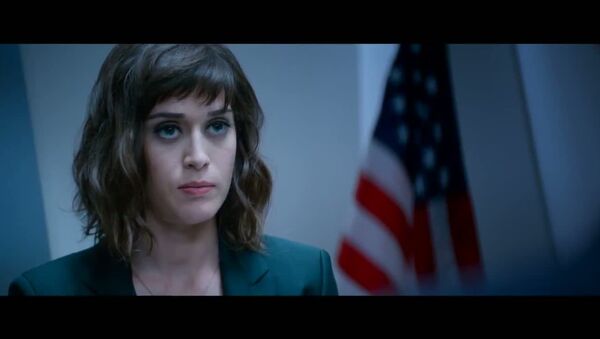The movie is about two celebrity TV journos who snag an interview with North Korean leader Kim Jong-un because he’s a fan of their show. When the CIA find out, they recruit the two, Rogen and the TV host played by actor James Franco, to take out Kim.
“Take out” as in snuff him out.
Needless to say, the movie caused what can only be described as a major uproar, when hackers ostensibly unhappy with the film’s depiction of Pyongyang’s “Dear Leader” broke into the film’s backer Sony Pictures email and flooded the Internet with a barrage of disparaging emails about Hollywood stars and producers.
Rumors have since swirled around that U.S. government officials were involved in greenlighting the movie, including the original controversial ending in which Kim is killed in a train explosion. (The ending changes but… no spoilers here!) State Department officials purportedly saw the movie and said it could even been used as good propaganda against the North Korean regime.
While a State Department spokesman said officials did meet with movie execs, however, they claimed the government was not involved in okaying the script.
According to one of the hacked emails, Sony Pictures CEO Michael Lynton showed the film to State Department officials. The emails also mention that Sony hired a defense analyst to consult on the film.
“While toning down the ending may reduce the North Korean response, I believe that a story that talks about the removal of the Kim family regime and the creation of a new government by the North Korean people (well, at least the elites) will start some real thinking in South Korea and, I believe, in the North once the DVD leaks into the North (which it almost certainly will). So from a personal perspective, I would personally prefer to leave the ending alone,” wrote Rand Corporation analyst Bruce Bennett in an email to Lynton that was originally obtained by the Daily Beast.
Later, State Department spokeswoman Jen Pskai admitted that Daniel R. Russel, the U.S. assistant secretary of state for East Asian and Pacific Affairs, had spoken with Sony executives but she denied that the State Department gave any sort of approval.
"Its a fictional movie – it’s not a documentary about our relationship with North Korea," Psaki said in a press briefing. "It’s not something we backed or supported or necessarily have an opinion on."
However, Rogen said he’s sure the U.S. government was involved, including the ultra-secretive Central Intelligence Agency.
“Throughout this (movie production) process, we made relationships with certain people who work in the government as consultants, who I’m convinced are in the C.I.A,” Rogen told The New York Times. Not surprisingly, the CIA has not commented.
It’s also not the first time that the CIA is reported to have “approved” a scene involving the fiery death of a foreign leader.
The studio initially cancelled the movie’s Christmas Day premiere when major movie outlets decided against showing it under threat by the anonymous hackers. The movie has since been released in independent theaters and online for purchase or rent.
While the movie has received decidedly mixed reviews, the free publicity surrounding all the controversy has been called “priceless.”


